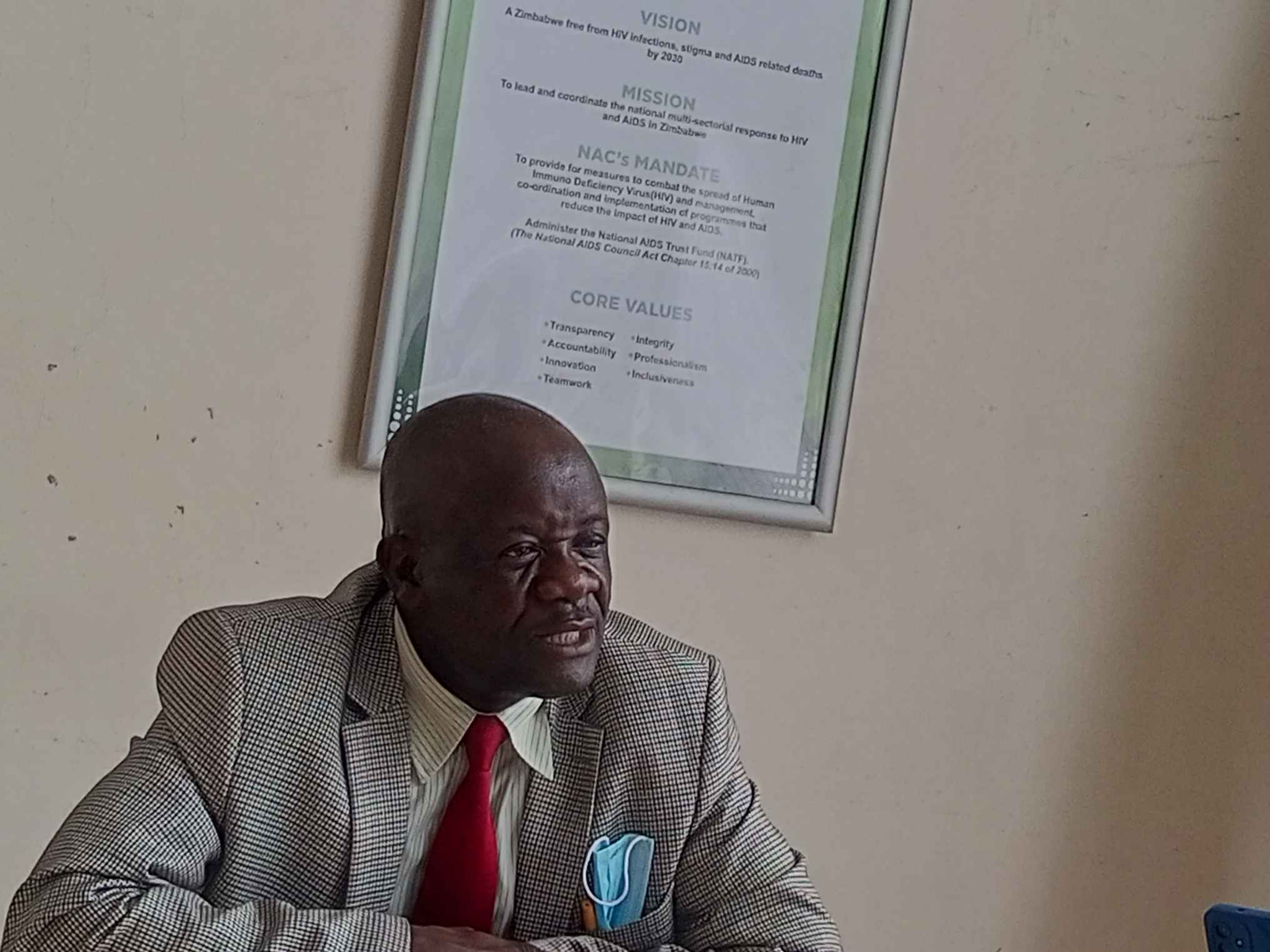|
Getting your Trinity Audio player ready…
|
The National AIDS Council (NAC) Midlands Province is bringing on board all stakeholders in the quest of leaving no place and no one as building blocks to ending AIDS by 2030.
Addressing journalists on a media tour, Mambeu Shumba, the NAC Provincial Manager for Midlands Province said the area is rich in minerals and also witnesses the movement of people from various directions of the country due to its centrality.
He said HIV prevalence in Midlands is 11, 73%. and there is a lot of work that needs to be done by stakeholders since there are still high cases of unprotected sex across the districts.
“The National AIDS Council has eight administrative provinces and in the Midlands, Surugwi has the highest prevalence of HIV at 15, 4%. It is the epicenter since there are a lot of artisanal miners. It attracts sex workers since the place teems with cross-border traders, truck drivers, informal traders, and women who sell groceries at a higher rate. In the process, the transmission of HIV takes place at a higher rate.
Shumba said Midlands has major problems in terms of HIV, especially limited access to HIV prevention information among key populations. The province uses peer-led models to reach the most affected.
“We are implementing peer education, key population programs, and behaviour change programs, and targeted communication as well as a focus on the male engagement approach where men engage other men on the HIV response.
“There is also limited access to HIV prevention information by geography, in places like resettlement areas and mining areas. We use combination prevention strategy outreach at one-stop centres. As our partners, the Zimbabwe Association of Church-related Hospitals (ZACH) provides SRH information to their membership and as NAC, we also give out information.
In partnership with other sisters via programs like Sista2Sista, vulnerable adolescents are equipped with information, tested for HIV, and trained on personal management. The Determined, Resilient, Empowered, AIDS-free, Mentored, and Safe (DREAMS) project that is being implemented by Zimbabwe Health Intervention (ZHI) is also bringing positive results.
A DREAMS beneficiary, Talent Munyonyi finished A Level at Mambo High School last year. She attended a social asset-building program at school under the DREAMS project.
“Through gender norms sessions, I now understand what gender means. I don’t have to sell my body to get money. We were taught income-generating activities. I got a chance to enroll other girls in the DREAMS program. I am part of the ZHI staff because of my experience and was appointed the Prevention Services Ambassador for Gweru District,” Talent said.
DREAMS targets girls and young women from 10 to 24 years. It screens beneficiaries for vulnerability. DREAMS operates in urban and rural areas. As an Ambassador, Talent stands between the beneficiary and the organisation and relates well with her peers who are comfortable sharing their health challenges with her.
Fadzai Mudondo, the District AIDS Coordinator for Kwekwe Urban under the National AIDS Council said a partnership with Jointed Hands Welfare Organization is bringing about positive HIV response outcomes among artisanal and small-scale mining areas.
“Since September 2022, peer educators have been working in mining compounds in Kwekwe Urban. They provide SRH sessions to artisanal miners who don’t have time to access condoms. Peer educators are trained to disseminate SRHR to 20 miners each in a year. They refer their clients for HIV testing and counseling for further care and treatment. There are continuous assessments and viral load checks.
“Those found HIV positive continuously visit clinics. A different program is targeting sex workers who are linked to Sista2Sista where they are fitted to programs commensurate with their age,” Mudondo said.
Hilda Muchengeti, a peer educator working with artisanal and small-scale miners said she conducts 4 sessions per month with 1 session per week.
“I am responsible for 25 miners. Miners are nomadic so they are difficult to monitor. Sex workers are also mobile. We offer family planning services, GBV prevention information, PrEP, and ART to our clients,” Muchengeti said.
Sex workers in mining areas can also face a plethora of challenges. A sex worker interviewed by this publication at Senga Polyclinic in Gweru who identified herself as Immaculate said there is a high risk of unprotected sex in mining areas and they are often faced with violence. She said the sex workers are embracing the SRHR programs that we are provided by NAC and its partners.
Petros Mazengwa, NAC District AIDS Coordinator for Gweru Urban said Gweru has approximately 4500 sex workers but that population is mobile, moving between towns but they converge in Gweru.
“There is a need to provide effective HIV intervention programs. We have a high student population from the Midlands State University, Mkoba Teachers College, and Gweru Technical College with a high number of youths. We have programs intended to reach people in tertiary institutions. We work with organisations like SAYWHAT who provide orientation to new students on SRHR and other health-related issues.
“All tertiary institutions are manned by trained peer educators who disseminate information to students. Gweru Urban has a 13, 5% prevalence and incidence of 0, 30% with 93,9 % ART coverage for Gweru Urban and Rural combined. The estimated number of people with HIV is around 30 000 in Gweru Urban. The combined population of Gweru’s Urban and Rural is 200 000,” Mazengwa said.
